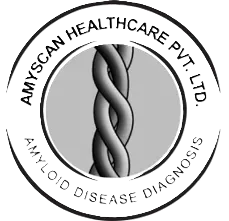Benefits of Recognizing Early Signs
IN THIS SECTION

Why Early Detection Matters
Most physicians are experienced in identifying Parkinson’s disease (PD) based on clinical evaluation. However, in many cases — especially in early stages or when symptoms overlap with other movement disorders — reaching a confident diagnosis can be difficult.

Why Late Diagnosis Is a Challenge
Most people are diagnosed with Parkinson’s only after motor symptoms become visible. By then:
- A large portion of dopamine-producing neurons may already be lost
- Treatment is limited to managing symptoms, not slowing the disease itself
- Early non-motor signs (e.g. sleep issues, loss of smell, constipation) are often missed or misunderstood

Benefits of Recognizing Early Signs
Understanding possible early signs can open the door to proactive steps. While it doesn’t mean a diagnosis, it can empower people to consult their doctors earlier.
Timely Evaluation
Allows doctors to assess symptoms and plan follow-up
Lifestyle Adjustments
Exercise, diet & sleep routines may help with long-term management
Clinical Trial Access
Some early-intervention trials recruit at prodromal stages
Personal & Family Planning
Understanding the condition helps with informed decision-making

Who Might Consider Monitoring Early Signs?
Even though these symptoms can be caused by many conditions, people who notice the following may benefit from speaking to a healthcare provider:
- Persistent constipation
- Loss of sense of smell
- Acting out dreams during sleep (REM Sleep Disorder)
- Mood changes like anxiety or depression
- Family history of Parkinson’s

Our Focus: Science-Led and Clinically Guided
At AmyScan, we are developing a diagnostic tool to aid in the early detection of Parkinson’s-related biological changes. This platform is based on current scientific understanding of protein aggregates associated with the disease.
Note: The SynAScan 1 test is currently undergoing clinical trials and is not yet publicly available and will be offered only through medical professionals once approved, and is intended to support, not replace, clinical evaluation.
Disclaimer
The information provided on this website is as per our current knowledge and intended for knowledge and awareness purposes only. It is not intended to replace medical advice, diagnosis, or treatment. If you are experiencing symptoms that may be related to any neurological disorder, please consult a neurologist and/or movement disorder specialist.
Partner With Us in Care
Clinical diagnosis of Parkinson’s disease can be especially challenging when symptoms overlap with other movement disorders.
If you’re a healthcare provider interested in learning how the SynAScan-1 Test can support your diagnostic process, we’re happy to connect.
Have questions?
Let’s talk about how our test could complement your practice and benefit your patients.
